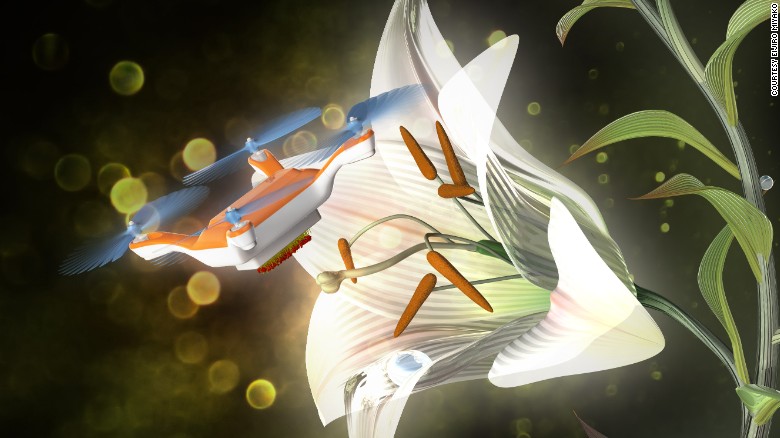A team of Japanese researchers have succeeded in using a pocket-sized drone to pollinate a flower, taking the first steps towards creating a safety net for the world’s flora as honeybees continue to die at an alarming rate.
The artificial pollinator is the brainchild of Eijiro Miyako, a chemist at the National Institute of Advanced Industrial Science and Technology in Tsukuba, Japan. It entails attaching horsehair bristles to a remote-controlled drone the size of a power adapter, and coating the bristles with a special gel that allows them to gather pollen from flowers and distribute them as a honeybee would.
A video published by Science News shows the drone in action.
In a paper published in the science journal Chem, Miyako's team explained the significance of their achievement.
"The global pollination crisis is a critical issue for the natural environment and our lives," they wrote. "The need to develop an innovative pollination tool that does not require time and effort to achieve pollination with a high success rate is urgent."
Pollination is the process by which plants reproduce. It involves pollen being transferred between flowers by both birds and insects. The honeybee is perhaps the most famous pollinator in the world, but has seen its population plummet worldwide as a result of pesticides, disease and habitat loss.

Honeybees are responsible for pollinating many of our favorite fruits, vegetables and nuts - the almond industry relies almost entirely on honeybees for pollination. As their population continues to decline, farmers will face a real production crisis.
However, Miyako's team writes that their drone gives them reason to be hopeful.
"The findings described here ... should lead to the development of robotic pollinators and help counter the problems caused by the declining honeybee populations," they wrote.
This breakthrough is only the first step in manually helping the ailling honeybee population. Future projects will attempt to substantially improve the artificial pollination process.
"We believe that robotic pollinators will be able to move smartly and learn the optimal pollination path by using GPS and artificial intelligence," Miyako's team explained.
Though still in its early stages, this project certainly appears to be something worth buzzing about.

